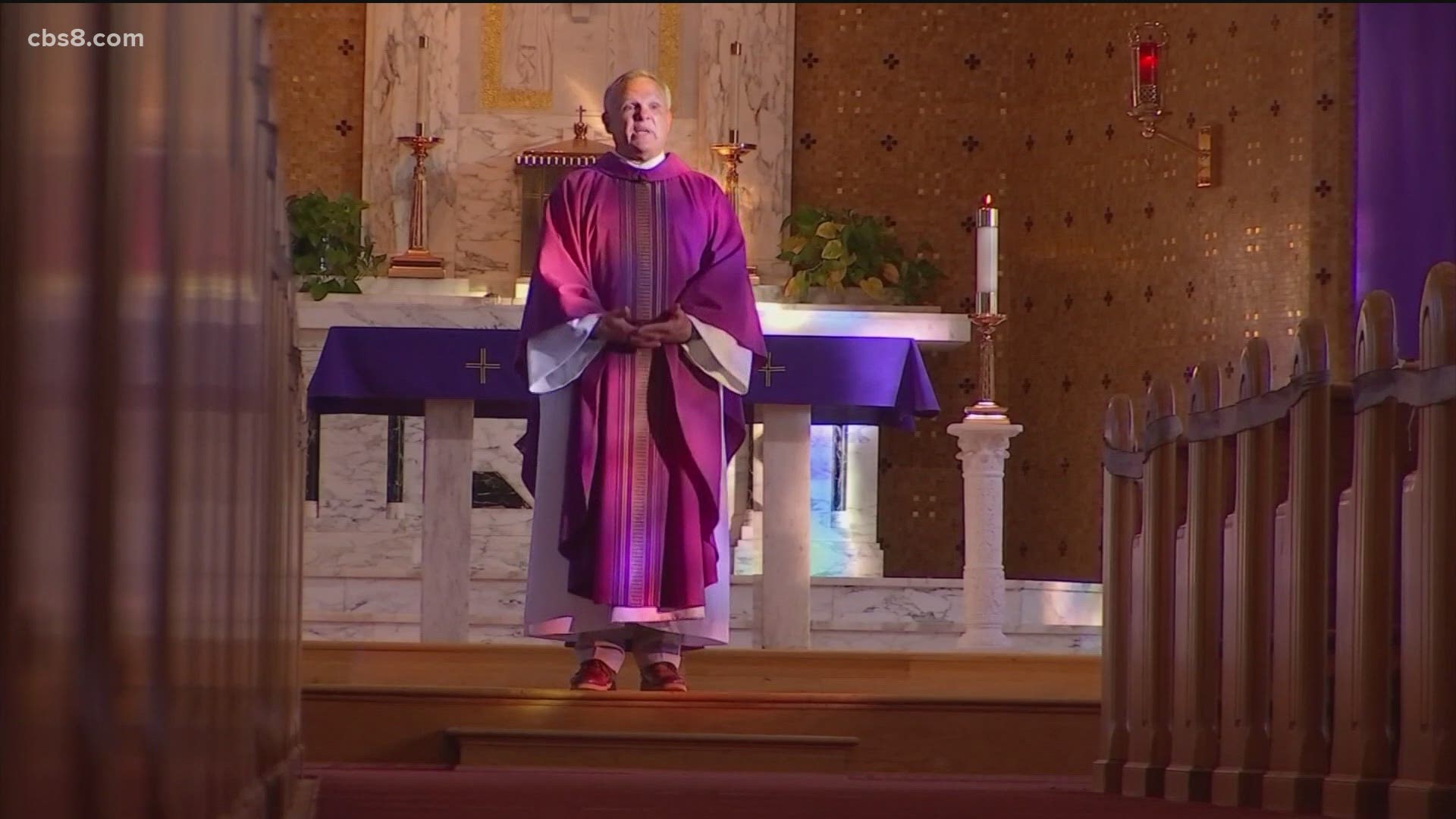SAN DIEGO — The Catholic Diocese of San Diego encouraged parishioners to accept any type of coronavirus vaccine offered to them following a statement from the U.S. Conference of Catholic Bishops last week that recommended Catholics take either the Moderna or Pfizer vaccine, if offered a choice.
The issue begins with the church’s hardline stance on abortions and the use of fetal cell lines in vaccines.
Cell lines originated from an aborted fetus in the 1970s and 1980s and were then grown thousands of times over in laboratories to develop vaccines. It does not use fetal tissues and does not contain aborted fetal cells.
“This one cell line [in the Johnson & Johnson vaccine] is derived from an aborted fetus from the Netherlands in the 1970s. This one cell line happens to be really easy to get DNA and all of the stuff that you need to express in the cell,” explained Dr. Michael Tang, a virologist with USF Health.
Both Pfizer and Moderna used fetal cell lines to develop their respective vaccines. Johnson & Johnson also uses them to manufacturer their vaccines, which is what prompted the statement from the bishops last week.
The Catholic church has often spoken out against pharmaceuticals using cells derived from aborted fetuses and encouraged them to use other methods. However, it has also recognized the good impact vaccines can have on society.
“They have been genetically manipulated and they're used as experiments in a whole range of medicines and other products and so, there is no danger here morally that is going to lead to a manipulation of humanity,” said Bishop Robert McElroy with the Roman Catholic Diocese of San Diego about the Johnson & Johnson vaccine. “The bottom line on all those statements has been, in this moment with what we're facing, with the vaccines we have, it's wholly important for us to use them. It's moral and it's a good thing in service to our society and to those whom we love.”
The Vatican has also stated Catholics should not be concerned about taking the Johnson & Johnson vaccine. Church leaders highlighted its potential benefits for hard-to-reach communities because it is easier to store and administer than previously authorized vaccines.
“The concrete moral question of this moment is Catholic theology,” said McElroy. “Is it morally appropriate and, in fact, morally a very good thing to take any one of these three vaccines now to bring immunity to the whole of society? And the answer quite clearly at all levels is yes.”

